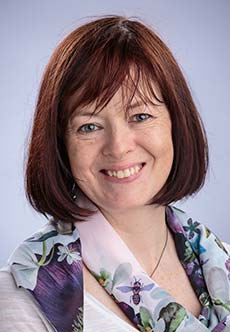BHGI develops, implements and studies evidence-based, economically feasible, and culturally appropriate Guidelines for International Breast Health and Cancer Control for low- and middle-income countries (LMICs), to improve breast health outcomes and access to breast cancer screening, detection and treatment for women.
In 2002, we were jointly founded by Fred Hutch and Susan G. Komen as an innovative alliance and network of individuals, health organizations, government agencies, non-governmental organizations (NGOs) and corporations. We share a dedication to improving breast health care and cancer treatment for women in economically disadvantaged countries.
BHGI began by defining best practices with limited resources and creating consensus guidelines for early detection, diagnosis, treatment, health care systems and public policy. Through our global alliance, public health research and international implementation and pilot projects validate and operationalize these guidelines.
April 30, 2020: Press Release - BHGI publishes implementation strategy for improving breast cancer care globally
What We Do (And Why)
The global challenge of breast cancer extends beyond the capacity of any one partner or sector to address. Breast cancer is the most common cause of cancer-related death for women worldwide, with the highest lethality rates occurring in economically disadvantaged countries. While major progress has been made to improve breast cancer outcomes in developed countries, resource constraints limit the application of early detection, diagnosis and treatment strategies in most of the world.
LMICs lack the financial resources to implement optimal breast health care programs. As a result, breast care guidelines from economically privileged regions, such as the U.S. and Western Europe, have limited utility in low- or mid-level resource countries. Instead, these countries need to implement breast cancer control programs appropriate for their country's resources and competing health care needs. Evidence-based guidelines can define strategies by which economically practical, incremental improvements can be introduced to create measurable improvements in health care administration and outcome.
Program Description
- Our alliance of leading health experts develops, implements and studies evidence-based, economically feasible, and culturally appropriate guidelines to deploy in LMICs.
- These guidelines are freely available online and distributed through world health and medical organizations, international government agencies, Ministers of Health (MOH) and patient advocate groups. They serve as a fundamental medical tool in countries where access to healthcare is challenged, breast cancer awareness is limited and cultural barriers need to be overcome.
We implement international research via pilot projects based on the guidelines and initiative goals.
Leadership
The BHGI Executive Committee is comprised of leaders and innovators from leading health institutions around the world.
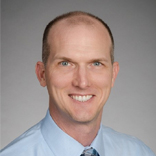
John R. Scheel, M.D., Ph.D., MPH
Dr. Scheel is a physician at the Seattle Cancer Care Alliance and is assistant professor of radiology at the University of Washington.. His clinical practice includes all aspects of breast imaging, including mammography, ultrasound, MRI and tomosynthesis, and breast interventional procedures. His research activities are focused on identifying and addressing health care access barriers in underserved communities (both locally and globally). Dr. Scheel was appointed BHGI Chair and Director in July 2021.

Benjamin O. Anderson, M.D.
Dr. Anderson founded the Breast Health Global Initiative in 2002. While at BHGI he focused on implementing international pilot projects to study, test, and validate the guidelines, and create modular healthcare programs. Dr. Anderson is now Medical Officer, Cancer Control at the World Health Organaztion in Geneva where he is leading the Global Breast Cancer Initiative.
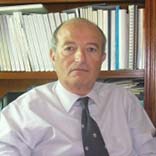
Eduardo L. Cazap, M.D., Ph.D.
Cazap, Founder and President of Latinamerican and Caribbean Society of Medical Oncology (SLACOM) in Buenos Aires, Argentina, has a special interest in the problem of global cancer control and solving disparities in access to cancer prevention and treatment across economically diverse nations.
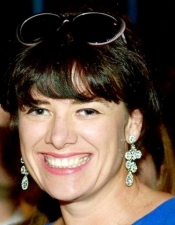
Allison Ekberg Dvaldze
Allison Ekberg Dvaladze is an advisor on health policy with the World Health Organization. Prior to joining WHO Allison was at the University of Washington and Fred Hutchinson Cancer Center where she contributed to BHGI efforts to promote evidence-based and resource appropriate strategies for advancing breast cancer care globally and led the Women’s Empowerment Cancer Advocacy Network, connecting breast cancer advocates across borders to elevate the voice of cancer survivors.
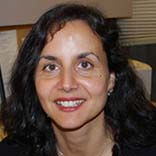
Silvana Luciani
At the Pan American Health Organization, Ms. Luciani leads the initiative for cancer prevention and control in the Americas, the implementation of the Regional Strategy for Cervical Cancer, and provides policy and technical advice to Ministries of Health on national cancer control plans.

Lisa Stevens, Ph.D.
Dr. Lisa Stevens, Director, Programme of Action for Cancer Therapy (PACT), International Atomic Energy Agency, leads the Agency’s involvement in comprehensive cancer control, in partnership with WHO, IARC and others. In organizing imPACT Reviews, the IAEA and its partners provide a comprehensive evaluation of cancer care capacity and needs in Member States. PACT also supports Resource Mobilization efforts for cancer activities at the Agency and within Member States, upon request.

Victoria Woldozko
As vice president, research and community health program operations for Susan G. Komen®, Ms. Wolodzko is responsible for Komen’s research, national community health and global grants, programs, and strategic partnerships, along with grant-making operations for the Affiliate Network., She leads a team of 37 scientists, public health professionals, and administrators in working to end breast cancer in the U.S. and throughout the world through groundbreaking research, community health outreach, and programs in more than 30 countries.
Contact Us

